样式: 排序: IF: - GO 导出 标记为已读
-
Type-II robotic partial disassembly line balancing problem and MIP-based bi-stage genetic neighborhood search algorithm J. Ind. Inf. Integr. (IF 11.6) Pub Date : 2025-12-06 Wei Liang, Zeqiang Zhang, Dan Ji, Haiye Chen, Yan Li, Qiyao Duan, Zongxing He
Once a disassembly line is constructed, it typically remains unchanged for an extended period. Consequently, the disassembly of end-of-life (EOL) electronic and electrical appliances for subsequent orders must be planned based on the existing production line configuration after completing the previous order of EOL electronic and electrical appliances. To address this challenge, this study proposed
-
-
Overall water effectiveness: A new lean indicator for digital evaluation of water efficiency in industrial processes J. Ind. Inf. Integr. (IF 11.6) Pub Date : 2025-12-01 Marcello Braglia, Mohamed Afy-Shararah, Francesco Di Paco, Roberto Gabbrielli, Leonardo Marrazzini
Water management is becoming an increasingly critical challenge for manufacturing industries due to growing environmental concerns, stricter regulatory requirements, and rising pressure from clients demanding more sustainable practices. Efficient and transparent use of water resources is no longer optional but a strategic necessity across industrial sectors. In this paper a new Lean performance indicator
-
Information scene-augmented mapping for smart bearing whole life cycle digital twin J. Ind. Inf. Integr. (IF 11.6) Pub Date : 2025-12-01 Zixian Li, Hebin Zheng, Shenlan Liu, Wenbin Huang, Xiaoxi Ding, Xiaohui Chen
Benefiting from the digitization of mechanical equipment, the digital twin of smart bearing can better realize the whole life cycle intelligent operation and maintenance of mechanical equipment, where the twin data are normally utilized to realize the state mapping with the identification or prediction model. Whereas, this process is mostly single interaction, and the dynamic update of the twin model
-
Leveraging Model-Based Systems and Software Engineering for Digital Twin Engineering: Methods and Digital Thread Opportunities J. Ind. Inf. Integr. (IF 11.6) Pub Date : 2025-11-29 Clarissa Gregory, Souad Rabah, Vincent Chapurlat, Fedor Burčiar, Monika Herchlová
The Digital Twin (DT) is a reciprocally connected and synchronized representation of a physical asset so-called Physical Twin. DT is a central component of a Digital Twin System (DT System), that interconnects the DT and the Physical Twin, through different components, and executes the necessary functions such as exchanging, processing or storing data. The engineering of the DT System is a long and
-
Onboard camera-LiDAR deployment optimization: Towards applications for pavement distress detection with multi-sensor fusion J. Ind. Inf. Integr. (IF 11.6) Pub Date : 2025-11-29 Ganghao Sun, Ciyun Lin, Bowen Gong, Hongchao Liu
Multi-sensor fusion has emerged as a solution for accuracy and cost-effective pavement distress detection. However, optimizing the deployment to utilize sensors’ diverse capabilities and enhance their effectiveness has not been thoroughly addressed. Therefore, this study proposed a novel framework for onboard camera-LiDAR deployment optimization. First, mathematical models were formulated to calculate
-
Emerging perspectives on embodied intelligence in future smart manufacturing J. Ind. Inf. Integr. (IF 11.6) Pub Date : 2025-11-29 Dan Xia, Pengpeng Xu, Guangjie Han, Jinfang Jiang
Embodied intelligence has emerged as a transformative paradigm in artificial intelligence, representing the convergence of multimodal perception, cognitive reasoning, and physical interaction with the environment. In the context of smart manufacturing, it is increasingly recognized as a key enabler for future intelligent systems capable of adapting to dynamic, unstructured, and human-centric production
-
Cognitive-based framework for detecting and diagnosing broken bars in induction motors for industry maintenance J. Ind. Inf. Integr. (IF 11.6) Pub Date : 2025-11-28 Narco Afonso Ravazzoli Maciejewski, Roberto Zanetti Freire, Anderson Luis Szejka, Thiago de Paula Machado Bazzo, Sofia Moreira de Andrade Lopes, Rogério Andrade Flauzino
Three-phase induction motors are the primary actuators for converting electrical energy into mechanical energy in the productive sector, constituting key assets due to their widespread use and critical function. Reducing maintenance costs and implementing predictive techniques incentivize the development of systems to identify intrinsic defects. The increasing demand for customization in manufacturing
-
The interplay of data-driven insights and AI anxiety in shaping the impact of AI capabilities on circular economy capability J. Ind. Inf. Integr. (IF 11.6) Pub Date : 2025-11-24 Robinson Garcés-Marín, José Arias-Pérez, Camilo Restrepo-Estrada
In a world facing pressing environmental challenges like climate change and resource scarcity, Artificial Intelligence (AI) is widely regarded as a powerful tool to enhance and support sustainability goals via Circular Economy Capability (CEC). The organizational capacity to leverage this technology, Artificial Intelligence Capability (AIC), is conceptualized through the lens of the Resource-Based
-
Harnessing collective intelligence of multi-agent LLM systems for sensor failure reasoning in smart manufacturing J. Ind. Inf. Integr. (IF 11.6) Pub Date : 2025-11-21 Wei Gong, Shuang Qiao, Chenhong Cao, Shilei Tan, Junliang Ye, Haoxiang Liu, Si Chen, Xuesong Wang
In smart manufacturing, accurate sensor fault diagnosis is essential for operational integrity. However, the direct application of Large Language Models (LLMs) to this task yields unstructured analyses and inefficient resource use. To address these challenges, we propose a novel multi-agent framework that instills a structured, modular, and adaptive reasoning process. The framework features a Reasoning
-
An anonymization framework for IEC 61850 substation communications: Field-level and topology-aware privacy J. Ind. Inf. Integr. (IF 11.6) Pub Date : 2025-11-19 Soheil Shirvani, Emmanuel D. Buedi, Kwasi Boakye-Boateng, Yoonjib Kim, Rongxing Lu, Ali A. Ghorbani
Substation datasets, like those using the IEC61850 standard, hold sensitive information about power flows, equipment statuses, and network configurations. This data could expose vulnerabilities to knowledge-based cyberattacks, making utility providers hesitant to share it publicly for research. While encryption enhances security, it often diminishes the dataset’s utility for research purposes. To address
-
An IoV data imputation-fusion bus mass estimation framework based on triple dependency and multi-source information fusion networks J. Ind. Inf. Integr. (IF 11.6) Pub Date : 2025-11-18 Zhengzhong Zheng, Shijiang Li, Liang Hou, Haojing Lin, Jiancheng Chen
Accurate bus mass estimation is crucial for safety and efficiency. However, existing approaches often exhibit limited accuracy when applied to Internet of Vehicles (IoV) data, primarily due to the low sampling rates in practical scenarios. To address this challenge, a framework is proposed for bus mass estimation using IoV data. It focuses on data imputation and information fusion. A Triple Dependency
-
LLM-MTMP: A large language model-based multi-agent task and motion planning framework for power inspection robots J. Ind. Inf. Integr. (IF 11.6) Pub Date : 2025-11-18 Zongyuan Wang, Xin Zhou, Jianliang Mao, Chuanlin Zhang, Chenggang Cui, Jun Yang
Manually designing robotic task sequences is labor intensive and inefficient, especially in power inspection tasks that involve academic background knowledge and complex operation rules. To overcome this limitation, this paper presents a large language model-based multi-agent task and motion planning framework, LLM-MTMP, to enable autonomous human–robot interaction and task execution of robot in power
-
A distributed extended reality escape method for layered underground infrastructure based on AI game engine J. Ind. Inf. Integr. (IF 11.6) Pub Date : 2025-11-16 Wei Li, Linbing Wang, Maogui Sun, Dengcai Yin, Yajian Wang, Xiang Zhou, Yongming Wang, Zhoujing Ye
As the structural carrier of mineral resources, underground mine is a typical artificial large layered underground infrastructure. The safety of mining systems remains a critical concern for nations worldwide. Based on the environmental characteristics of underground mines, the accompanying safety issues are evident. Conventional personnel evacuation drills for mine disasters often fail to create effective
-
Category-controllable and high-fidelity 3D defect synthesis for Embodied Intelligence-based industrial inspection J. Ind. Inf. Integr. (IF 11.6) Pub Date : 2025-11-15 Ting Li, Di Li, Chunhua Zhang, Peng Chi, Ziren Luo
Embodied Intelligence (EI) integrates perception, cognition, and action within manufacturing systems, enabling on-device learning and human-machine collaboration. For surface defect inspection, this requires real-time reasoning over subtle 3D geometries and continuous self-improvement using high-quality training data. However, current point cloud generation methods fall short in synthesizing 3D defects
-
Transition for transdisciplinary, human-centric industrial applications: design theories and applications J. Ind. Inf. Integr. (IF 11.6) Pub Date : 2025-11-12 Josip Stjepandić, Margherita Peruzzini, John P.T. Mo, Pisut Koomsap
-
Physics-informed continuous-time reinforcement learning with data-driven approach for robotic arm manipulation J. Ind. Inf. Integr. (IF 11.6) Pub Date : 2025-11-12 Jin-Qiang Wang, Lirong Song, Jun Shen, Binbin Yong, Xiaoteng Han, Yuanbo Jiang, Mona Raoufi, Qingguo Zhou
Deep reinforcement learning (DRL) plays a crucial role in complex sequential decision-making tasks. However, existing data-driven DRL methods primarily rely on an empirical risk minimization (ERM) strategy to fit optimal value function models. This approach often neglects the environment’s dynamical system properties, which in turn leads to an inadequate consideration of the structural risk minimization
-
From brain to reflex: An emergency response control architecture for embodied intelligent robots J. Ind. Inf. Integr. (IF 11.6) Pub Date : 2025-11-10 Cheng Wang, Shiyong Wang, Wujie Zhang, Min Xia, Zhenfeng Shi
The perception-control-execution layered architecture, commonly used in current embodied intelligent robot control systems, suffers from inherent latency caused by its serial processing mechanism, which limits a robot's ability to respond to sudden disturbances, such as falls and collisions. To overcome this bottleneck, this study proposes a biomimetic emergency response control architecture for embodied
-
An embodied intelligence-based online optimization methodology for injection molding process using multi-cavity hot-runner J. Ind. Inf. Integr. (IF 11.6) Pub Date : 2025-11-09 Hongyi Qu, Luo Fang, Jinbiao Tan
In the process of multi-cavity hot runner injection molding, the issue of mold filling imbalance caused by uneven temperature distribution significantly affects the quality of precision products such as optical lenses. Traditional methods primarily rely on mold thermal structure design and lack dynamic optimization strategies aimed at product quality. This paper proposes an embodied intelligent online
-
CoperFed: A covert personalized federated learning framework for Industrial Control Systems intrusion detection J. Ind. Inf. Integr. (IF 11.6) Pub Date : 2025-11-06 Yao Shan, Jindong Zhao, Yongchao Song, Haojun Teng, Wenhan Hou, Zhaowei Liu
Modern information and communication technologies have propelled transformative modernization of Industrial Control Systems (ICSs) while exacerbating cybersecurity risks. Federated Learning (FL) offers a privacy-preserving framework for collaborative development of intrusion detection models among distributed participants. However, its effectiveness is significantly limited by inherent model divergence
-
A Novel graph-embedded musical chairs optimization with secure elliptic encryption framework for intelligent edge computing in healthcare iot networks J. Ind. Inf. Integr. (IF 11.6) Pub Date : 2025-11-05 R. Gowthamani, S. Oswalt Manoj
Internet of Things (IoT) health systems have severe issues distinguishing malicious from legitimate traffic and ensuring secure and efficient data transmission for real-time patient care. Existing solutions have high complexity, low dynamic attack adaptability, and low encryption strength. For the purpose of solving these problems, this study suggests a security-enhanced intelligent edge computing
-
Sustainable building material supplier assessment in Pythagorean neutrosophic setting using ITARA and MACONT methods J. Ind. Inf. Integr. (IF 11.6) Pub Date : 2025-11-04 Tapas Kumar Paul, Madhumangal Pal
Supplier selection plays a pivotal role in the construction industry, particularly for companies that seek to harmonize sustainability, innovation, and quality in their operations. This paper introduces a novel multi-criteria decision-making (MCDM) framework that combines the Indifference Threshold-Based Attribute Ratio Analysis (ITARA) and the Mixed Aggregation by Comprehensive Normalization Technique
-
Intelligent prognostics of syngas pipeline elbow erosion via a hybrid machine learning–digital twin framework J. Ind. Inf. Integr. (IF 11.6) Pub Date : 2025-11-03 Yangyang Bao, Zeyang Shi, Xian Li, Yan An, Wenming Song, Yuge Li, Wei Wu, Liping Wei, Yuan Yan, Debiao Li
In modern energy and process industries, the growing demand for continuous, safe, and reliable operation poses increasing challenges to the structural integrity of critical equipment. Erosion, caused by complex gas–solid interactions, is a typical degradation mechanism that affects the service life and operational stability of components such as elbows in syngas pipelines. However, existing monitoring
-
A review of applications of AI in monitoring, inspection, and maintenance of railway tracks J. Ind. Inf. Integr. (IF 11.6) Pub Date : 2025-11-02 Amin Khajehdezfuly, Hadi Azizipour, Sakdirat Kaewunruen
With the advancement of Artificial Intelligence (AI)-based methods and the establishment of diverse databases, significant research has been conducted on the application of AI in railway track monitoring, inspection and maintenance. Although several review studies exist in this field, each has been confined to a limited scope, focusing on specific data types, data collection methods, or AI-based techniques
-
A sustainable electric vehicle smart production with work-in-process inventory of outsourced spare parts J. Ind. Inf. Integr. (IF 11.6) Pub Date : 2025-11-01 Biswajit Sarkar, Rekha Guchhait, Mitali Sarkar
Electric vehicle production has recently gained popularity due to increasing emissions. The research on electric vehicle production concerning technical, economic, and environmental aspects is very less compared to the traditional vehicle. This research studies a mixed-type electric vehicle production system that produces spare parts and finally assembles all spare parts for the vehicle. The spare
-
Task-level failure diagnosis in process control systems under cyberattack based on multilevel business process models J. Ind. Inf. Integr. (IF 11.6) Pub Date : 2025-10-31 Xuqing Liang, Chunjie Zhou, Yu-Chu Tian, Peihang Xu, Minglu Wang, Xin Du
Ensuring the secure operation of process control systems (PCSs) is critical in the face of increasing cyberattacks. Diagnosing the causes of safety protection failures and predicting potential failure paths during cyberattacks can help maintain the system stability and security. However, cyberattacks often target not only assets but also control tasks or disrupt business processes, rendering existing
-
An EMD-based forecasting framework integrating GMM and BiLSTM for helicopter engine anomaly detection J. Ind. Inf. Integr. (IF 11.6) Pub Date : 2025-10-30 Qi Shen, Jingwei Guo, Yihui Tian, Zhen-Song Chen
The safety of helicopter operations is paramount, yet early signs of potential failures often go undetected, highlighting the need for robust signal alert systems during flights. Detecting anomalies in helicopter engine behavior through vibration analysis is critically important due to the long-sequence nature and complexity of the data, which present significant challenges for real-time assessment
-
Behavioral planning and parameter meta learning for embodied intelligence robots in adaptive assembly J. Ind. Inf. Integr. (IF 11.6) Pub Date : 2025-10-30 Baotong Chen, Guangjun Xu, Lei Wang, Chun Jiang, Zelin Zhang, Zhaohui Wang, Xuhui Xia
Embodied intelligence (EI) is an emerging frontier in robotics that tightly integrates perception, action, and cognition. By continuously interacting with their environments, EI robots can self-evolve and adapt to uncertainties in flexible assembly tasks, thereby enhancing adaptability and execution efficiency. This paper proposes a behavioral planning and parameter meta learning approach for EI robots
-
Residual group attention network with depthwise separable convolutional neural network for credit evaluation and early warning in finance J. Ind. Inf. Integr. (IF 11.6) Pub Date : 2025-10-28 Jayaraman Kumarappan, Ammupriya A, S. Vijay Mallikraj, Mohammed Al-Farouni
The integration of big data technology with the Internet of Things (IoT) in finance presents an opportunity to enhance credit evaluation and early warning systems for credit risks. Traditional methods face challenges in processing multi-source heterogeneous financial data, leading to inaccuracies in credit risk assessments. This paper proposes an advanced approach using Local and Global Depth Normalization
-
Exploring the relationships between formalisation and validation tools in sustainability assessment models: Insights from formal concept analysis J. Ind. Inf. Integr. (IF 11.6) Pub Date : 2025-10-27 Sundeep Tamak, Yasamin Eslami, Nicolás Leutwyler, Catherine Da Cunha
Sustainability has emerged as a critical concern for manufacturing organisations due to increasing resource scarcity, alongside many other environmental and social concerns. Sustainability assessment models (SAM) play a vital role in evaluating and improving the environmental, economic, and social impacts of manufacturing organisations. To develop a robust sustainability assessment model, it is important
-
A Certificateless Aggregate G+G Signature Scheme with Intersection Method for Efficiency Improvement in Smart Grids J. Ind. Inf. Integr. (IF 11.6) Pub Date : 2025-10-27 Songshou Dong, Yanqing Yao, Huaxiong Wang
Smart grids (SGs) can greatly improve the efficiency, reliability, and sustainability of traditional grids. In an industrial SG, real-time user-side metering data may be frequently collected for monitoring and controlling electricity consumption. To reduce the burden on SGs, most existing privacy-preserving schemes use aggregated signatures to ensure the integrity of the message and improve communication
-
A multimodal data fusion-based intelligent detection method for lump coal on underground conveyor belts in smart manufacturing J. Ind. Inf. Integr. (IF 11.6) Pub Date : 2025-10-26 Le Chen, Ligang Wu, Qichao Ren
To address the challenges of low detection precision for lump coal on underground coal mine conveyor belts, this study proposes an intelligent detection method based on multimodal data fusion. The method is named YOLO DKH (YOLO Dynamic Snake Attention-KANA2-High-level Screening Feature Pyramid Network). This approach specifically targets the insufficient robustness of single-modal data under dust interference
-
AI-based data-driven framework optimizing smart manufacturing in industrial systems J. Ind. Inf. Integr. (IF 11.6) Pub Date : 2025-10-26 Mohammed Salem Basingab
Integrating Agent-Based Modeling (ABM) with the Industrial Internet of Things (IIoT) is reshaping how industries manage complexity, automate decision-making, and improve operational intelligence. This study presents a data-centric ABM–IIoT framework that strengthens the efficiency and responsiveness of industrial systems, particularly in manufacturing and planning domains. The framework supports dynamic
-
A literature review and bibliometric analysis of 50 years of optimization approaches applied to the order batching problem J. Ind. Inf. Integr. (IF 11.6) Pub Date : 2025-10-25 Anderson Rogério Faia Pinto, Esra Boz, Rafael Henrique Faia Pinto, Marcelo Seido Nagano
This manuscript presents a literature review with a bibliometric analysis on the Order Batching Problem (OBP). The research analyzed Literature Reviews (30) and Picking Optimization Methods (138). Most approaches focus on hypothetical warehouses with static (offline) orders and are configured as the classical OBP. These warehouses feature rectangular layouts (single-block and parallel aisles) with
-
Agent based web service composition using Q-learning algorithm with puffer fish optimization and petri net model J. Ind. Inf. Integr. (IF 11.6) Pub Date : 2025-10-25 Pallavi Tiwari, S. Srinivasan
The proliferation of cloud computing and web-based services has led to a significant increase in the number and complexity of online web services. As a result, discovering appropriate services that meet user requirements has become a challenging task. Traditional web services discovery techniques often lack the efficiency and adaptability needed to handle user expectations in a dynamic environment
-
A knowledge-driven decision support architecture for sustainable supplier analysis in an infrastructure project J. Ind. Inf. Integr. (IF 11.6) Pub Date : 2025-10-25 Song-Shun Lin, Xin-Jiang Zheng, Zhao-Yao Bao
-
Shared steering control framework based on visual-haptic compliance information for mitigating human–machine conflict J. Ind. Inf. Integr. (IF 11.6) Pub Date : 2025-10-25 Xuyang Wang, Wanzhong Zhao, Chunyan Wang, Ziyu Zhang, Xiaochuan Zhou, Yukai Chu
To mitigate the adverse impact of human–machine conflict on driving safety, this paper proposes an indirect shared steering control framework that leverages drivers’ visual and haptic compliance as multimodal embodied cues for adaptive authority allocation. A novel dual-modal compliance index is defined by fusing visual and haptic signals, and a real-time estimation system is implemented alongside
-
AI agent-based virtual model development, diagnosis, and calibration for building digital twins J. Ind. Inf. Integr. (IF 11.6) Pub Date : 2025-10-24 Jiteng Li, Jabeom Koo, Jeyoon Lee, Yuxin Li, Jiwan Song, Peng Wang, Tianyi Zhao, Sungmin Yoon
Building digital twins (BDTs) can enhance reliability by integrating real-time data with virtual model, yet most studies still treat virtual model development, fault diagnosis, and in-situ calibration as isolated stages, resulting in fragmented workflows, low automation, and limited interpretability. To address these issues, this study introduces a novel LLM-based AI agent method integrating virtual
-
Implicit dimension measurement for automated cross-sectional inspection of multi-lumen medical catheters J. Ind. Inf. Integr. (IF 11.6) Pub Date : 2025-10-24 WooSang Shin, Jonghyeon Lee, Dong Yun Choi, Iljeok Kim, JongPil Yun
Ensuring the cross-sectional shape integrity of medical catheters is a necessity for their safe and effective clinical functionality. Although visual inspection technologies have advanced rapidly, automated inspection of catheter tubes remains challenging due to the complex, deformable structures resulting from extrusion processes and the inherent properties of the materials. In this study, we introduce
-
LightPose: A lightweight fatigue-aware pose estimation framework J. Ind. Inf. Integr. (IF 11.6) Pub Date : 2025-10-24 Da Long, Sheng Yang
Fatigue assessment based on human motion plays a critical role in human-centric intelligent manufacturing, intelligent monitoring, and ergonomics. This growing demand underscores the need for low-cost, high-precision pose estimation techniques with broad application adaptability. To meet these requirements, we propose LightPose, a lightweight human pose estimation framework guided by bone segment principles
-
Analysis of models and methods and perspectives for corridor allocation problem: a literature review J. Ind. Inf. Integr. (IF 11.6) Pub Date : 2025-10-22 Zeqiang Zhang, Zongxing He, Junqi Liu, Dan Ji, Shuai Chen, Silu Liu
This review systematically investigates the corridor allocation problem (CAP) as an important branch of the facility layout problem under the smart manufacturing context. Its aim is to summarise the modeling and variants, classify the solution methods, and identify future trends. We analyse 87 papers published between 2012 and 2024. By systematically categorising and organising these papers, CAP can
-
Leakage localization methodology based on time difference of arrival of sound wave for subsea manifold J. Ind. Inf. Integr. (IF 11.6) Pub Date : 2025-10-21 Yi Jiang, Baoping Cai, Xuelin Liu, Guowei Ji, Yixin Zhao, Qingping Li, Lei Gao, Kaizheng Wu
Leakage is the main form of failure and safety hazard for a subsea manifold. Timely acquisition of leakage location information is the guarantee for safe subsea oil and gas transportation. The threshold detection and localization method is an important means of identifying the position of subsea leakages and is also one of the few applicable solutions. However, the fixed threshold leads to large errors
-
A hybrid HEART framework integrating EPC identification model and extended Z-polar coordinate for HRA: An application of robot-assisted rehabilitation J. Ind. Inf. Integr. (IF 11.6) Pub Date : 2025-10-19 Duojin Wang, Yue Dong, Mingyue Zhou, Xin Li
Amidst growing demands for rehabilitation, robot-assisted therapy has rapidly evolved as a crucial treatment modality. Despite its potential to enhance outcomes and efficiency, increased adverse events due to human errors remains a significant challenge. To address this issue, we present a novel hybrid Human Error Assessment and Reduction Technique (HEART) that integrates the SHELL model, extended
-
F2P-Net: A Hybrid Prompt-Enhanced Dual-Branch Cooperative Network for Industrial Surface Defect Segmentation with Limited Data J. Ind. Inf. Integr. (IF 11.6) Pub Date : 2025-10-19 Kerong Yan, Shuai Chen, Min Xu, Peiye Sun, Rui Wang
Industrial surface defect detection is constrained by the scarcity of defective samples and by the insufficient capacity of current segmentation methods to precisely delineate defect boundaries. To address these challenges, we propose F2P-Net, a few-sample, highly precise industrial surface defect segmentation framework composed of three core modules. ViCNet (ViT and CNN collaborative encoder network)
-
Bi-objective sustainable urban logistics vehicle routing problem with workload balance J. Ind. Inf. Integr. (IF 11.6) Pub Date : 2025-10-19 Wenyan Zhao, Yaguang Yuan, Cong Cheng, Wenheng Liu
The rapid advancement of e-commerce has driven unprecedented expansion in urban logistics networks, where their sustainability is constrained by multifaceted factors including strict time-bound service requirements, employee’s satisfaction, traffic congestion, and carbon emission regulations. Among these critical elements, employee’s satisfaction reflected by the workload balance not only influences
-
An ontology-based digital thread framework to support early concurrent engineering in the aerospace industry J. Ind. Inf. Integr. (IF 11.6) Pub Date : 2025-10-18 Eliott Duverger, Alexis Aubry, Rebeca Arista, Eric Levrat
The increasing complexity of the aerospace industry has highlighted the need to anticipate issues from the entire lifecycle of aircrafts. Identified too late, issues originating from the manufacturing or the maintenance phases can have considerable consequences on the overall development costs, time and quality of aircraft development. Concurrent Engineering (CE) is an approach that aims to improve
-
Surfing twin transition in agri-food supply chains: The role of iot and data analytics in sustainable decision-making J. Ind. Inf. Integr. (IF 11.6) Pub Date : 2025-10-18 Maria Elena Latino, Marta Menegoli, Angelo Corallo, Maria Grazia Gnoni
The agri-food industry faces complex challenges that impact operational efficiency, profitability, and the ability to meet evolving consumer expectations for transparency and sustainability. Industry 4.0 technologies, particularly the Internet of Things and data analytics, offer substantial potential to enhance performance and support sustainability goals across the supply chain. This study investigates
-
Enhancing precision in window to the brain modeling: Methodology and implementation of hybrid digital twins J. Ind. Inf. Integr. (IF 11.6) Pub Date : 2025-10-16 Marcos Llamazares López, Macarena Trujillo Guillén, Juan-Carlos Cortés, Rafael-J. Villanueva
The Window to the Brain (WttB) is a novel cranial implant designed to enhance therapeutic procedures involving brain tissue. Previous computational models studying the effectiveness of the WttB exhibited some discrepancies with experimental results and inconsistencies in certain parameter values. To overcome these drawbacks, the following steps are followed. We first perform a domain reduction where
-
AI-based cybersecurity for a sustainable digital industry: Systematic literature review and future research directions J. Ind. Inf. Integr. (IF 11.6) Pub Date : 2025-10-15 Marianna Lezzi, Pierluigi Montefusco, Mariangela Lazoi, Angelo Corallo
The adoption of artificial intelligence (AI) to ensure sustainable cybersecurity practices is a major challenge in the era of Industry 4.0. AI techniques can classify and detect the huge number of cyber-attacks affecting modern industrial systems due to their adaptability and predictability, offering speed of classification, discovery of hidden patterns, and increased accuracy. However, the current
-
Region-Aware Guidance Training for pipeline segmentation in complex outdoor industrial environments J. Ind. Inf. Integr. (IF 11.6) Pub Date : 2025-10-15 P. Mentesidis, V. Mygdalis, I. Pitas
Accurate segmentation of insulated pipelines is essential for automated inspection and structural analysis in complex industrial environments. While UAV-based visual inspection is increasingly adopted, current systems often struggle with cluttered scenes and rely heavily on manual interpretation. This paper proposes Region-Aware Guidance Training (RAGT) for pipeline segmentation, a novel and modular
-
Self-adaptive solution for industrial integration of AI-based decision-making systems for industrial flows management J. Ind. Inf. Integr. (IF 11.6) Pub Date : 2025-10-14 Ivo Perez Colo, Carolina Saavedra Sueldo, Luis Avila, Geraldina Roark, Gerardo G. Acosta, Mariano De Paula
From the perspective of systems theory, a production process can be conceptualized as an organized set of operations that primarily involves managing the flow of materials, goods, energy, and information. Optimal management of industrial flows is a complex decision-making problem that has been addressed for decades, from modeling and optimization theory to today’s artificial intelligence (AI) techniques
-
Distillation anomaly and fault detection based on clustering algorithms J. Ind. Inf. Integr. (IF 11.6) Pub Date : 2025-10-14 F.M. Martínez-García, A. Molina García, F.C. Gómez de León, M. Alarcón
Anomaly detection in production processes is essential for ensuring reliability and efficiency in the industrial sector. In this way, system optimization requires advanced monitoring strategies such as predictive maintenance and intelligent fault detection. Traditional diagnostic methods rely on retrospective data analysis and deterministic cause-effect models, while machine learning approaches enable
-
Enabling human–CPS cognitive interoperability: Cognitive architectures as technologies for human-like cognitive digital twins J. Ind. Inf. Integr. (IF 11.6) Pub Date : 2025-10-13 Al Haj Ali Jana, Ben Gaffinet, Mario Lezoche, Hervé Panetto, Yannick Naudet
Cognition, the set of mental processes that enable humans to perceive, reason, learn and decide, plays an essential role in effective collaboration between humans and Cyber–Physical Systems (CPSs). To achieve seamless cognitive interoperability between humans and CPSs, it is necessary to integrate a Cognitive Digital Twin (CDT) and a Human Digital Twin (HDT) to provide digital representations of both
-
Cognitive Digital Twin for industrial maintenance: operational framework for fault detection and diagnosis J. Ind. Inf. Integr. (IF 11.6) Pub Date : 2025-10-12 Sofia Zappa, Chiara Franciosi, Adalberto Polenghi, Alexandre Voisin
Digital Twin is a cutting-edge technology designed to address disruptions in manufacturing operations by supporting humans in complex maintenance decisions via advanced data analytics and real-time synchronization. However, as the complexity of decisions increases, enhanced capabilities are required, such as reasoning and context awareness, leading to the Cognitive Digital Twin (CDT) concept. In this
-
Dynamic product risk management in product lifecycle management of medical products J. Ind. Inf. Integr. (IF 11.6) Pub Date : 2025-10-11 Roberto Antonio Riascos Castaneda, Egon Ostrosi, Josip Stjepandic
Medical device manufacturers must be able to manage risks at several stages of the product development process and throughout the overall lifecycle. Through the implementation of PLM in healthcare, medical device manufacturers can efficiently oversee the complete lifecycle of their medical products. However, traditional PLM approaches do not adequately address integration with risk management. This
-
Towards human digital twin: Reviewing human modelling and simulation J. Ind. Inf. Integr. (IF 11.6) Pub Date : 2025-10-11 Enshen Zhu, Sheng Yang
The human digital twin (HDT) is a detailed and personalized digital representation of an individual, encompassing the physical, cognitive, psychological, and social characteristics. HDT, an extension of the traditional digital twin concept from the industrial engineering sector, finds applications in diverse human-centric sectors such as smart manufacturing, medical healthcare, personal fitness, and
-
Cross-domain zero-shot fault diagnosis method for high-voltage circuit breakers driven by multidomain spatial projection and dual embedded structure J. Ind. Inf. Integr. (IF 11.6) Pub Date : 2025-10-11 Yuxiang Liao, Qiuyu Yang, Jiangjun Ruan, Jingyi Xie, Xue Xue, Yuyi Lin
High-voltage circuit breakers (HVCBs) present challenges in cross-domain fault diagnosis under zero-shot scenarios due to their complex mechanisms, diverse failure modes, and scarce fault samples. To address this problem, this paper proposes a cross-domain zero-shot diagnosis method for HVCBs driven by multidomain spatial projection (MSP) and dual embedded structure (DES), named MSP-DES. The proposed
-
Manufacturing process scheduling method based on multi-level and cross-chain collaboration under industrial internet environment J. Ind. Inf. Integr. (IF 11.6) Pub Date : 2025-10-11 Wenjun Xu, Jinshan Zhong, Jiayi Liu, Shuang Zheng, Xianglong Zou, Feng Liu
Under the industrial internet environment, achieving effective manufacturing process scheduling requires collaboration across the workshop level, production line level, industrial chain, and value chain. This collaboration enables the integration of manufacturing process information, aligning scheduling more closely with practical operations. However, the existing scheduling approaches mainly focus
-
Effectiveness of debris flow mitigation measures through T-spherical fuzzy Soft Dombi aggregation operators with EDAS-based multi-criteria decision making in mountainous regions J. Ind. Inf. Integr. (IF 11.6) Pub Date : 2025-10-10 Himanshu Dhumras, Manish Kumar, Rakesh Kumar Bajaj
Debris flows are a significant hazard to human life, infrastructure, and the environment, particularly in mountainous regions where steep terrain and extreme weather intensify their impact. Mitigating these events requires robust decision-making frameworks that can effectively process uncertainty and complex data. This study introduces the score and accuracy functions for T-spherical fuzzy Soft numbers
-
Information integration-based factor object approach for object classification judgment in the system fault evolution process J. Ind. Inf. Integr. (IF 11.6) Pub Date : 2025-09-30 Shasha Li, Tiejun Cui
Industrial system fault information is a fusion of fault-related data, where objects represent core fault events and factors quantify their dynamic states. Factor variations directly reflect object characteristics, driving the System Fault Evolution Process (SFEP)—a complex progression of system functionality from normal operation to failure, shaped by temporal changes in object states and factor values



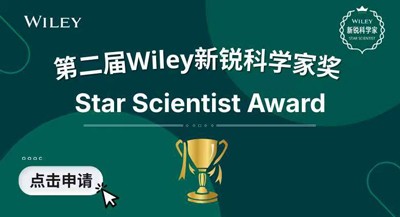



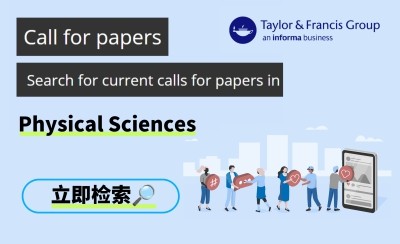
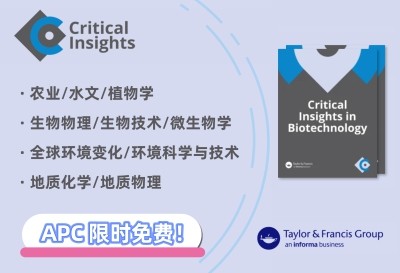
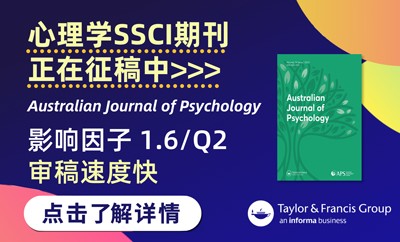
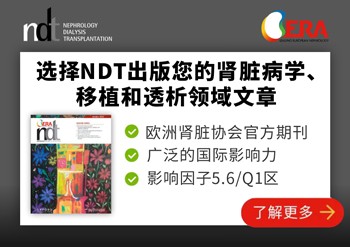



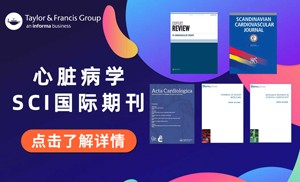



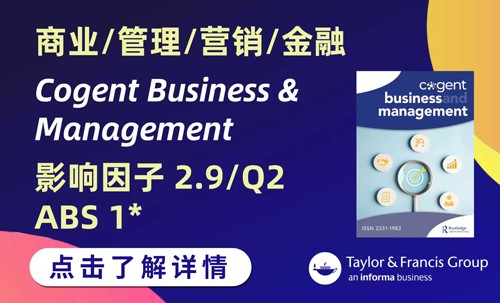
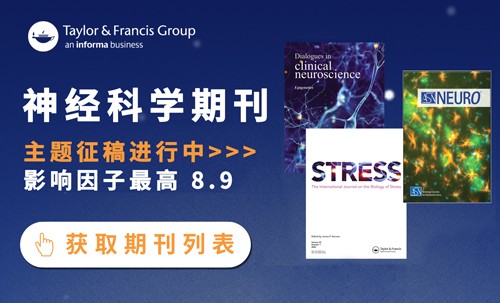
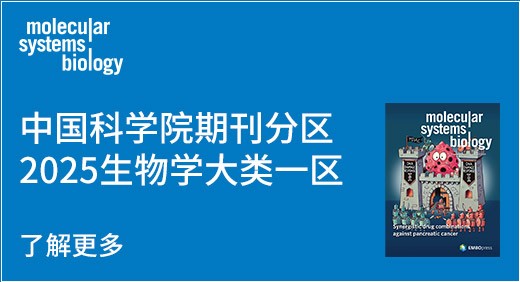
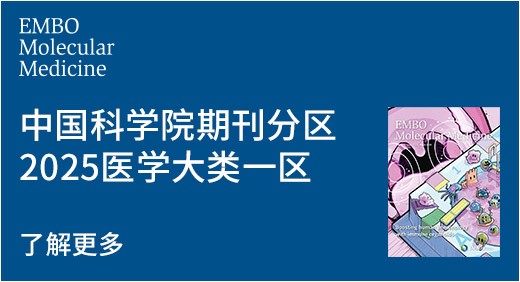





















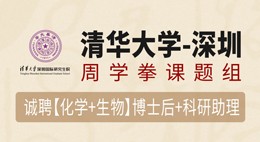


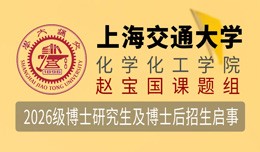


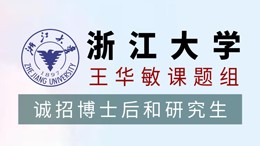
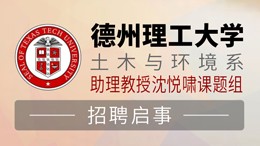
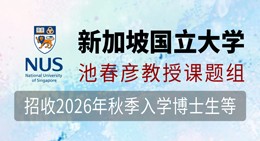



 京公网安备 11010802027423号
京公网安备 11010802027423号